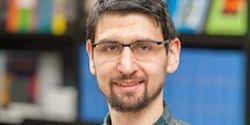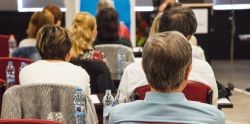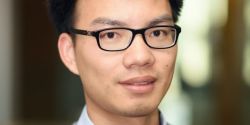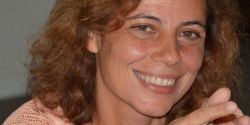Title: Artificial Intelligence-aided Discovery of 2D Materials
Speaker: Murat Sorkun (DIFFER, Autonomous Energy Materials Discovery group)
Time: Jan. 14, 2021, 10:00–11:00
Location: Online (MS Teams)
Murat will discuss the recent Nature publication he wrote together with Séverin Astruc, Vianney Koelman and Süleyman Er. Link: https://www.nature.com/articles/s41524-020-00375-7
The CCER seminars are aimed at researchers interested in computational approaches to (energy) research. The seminar is small-scale, typically 15 participants, and interactive, offering lots of room for discussion. If you would like to attend, just This email address is being protected from spambots. You need JavaScript enabled to view it. so as to receive the MS Teams meeting link.






